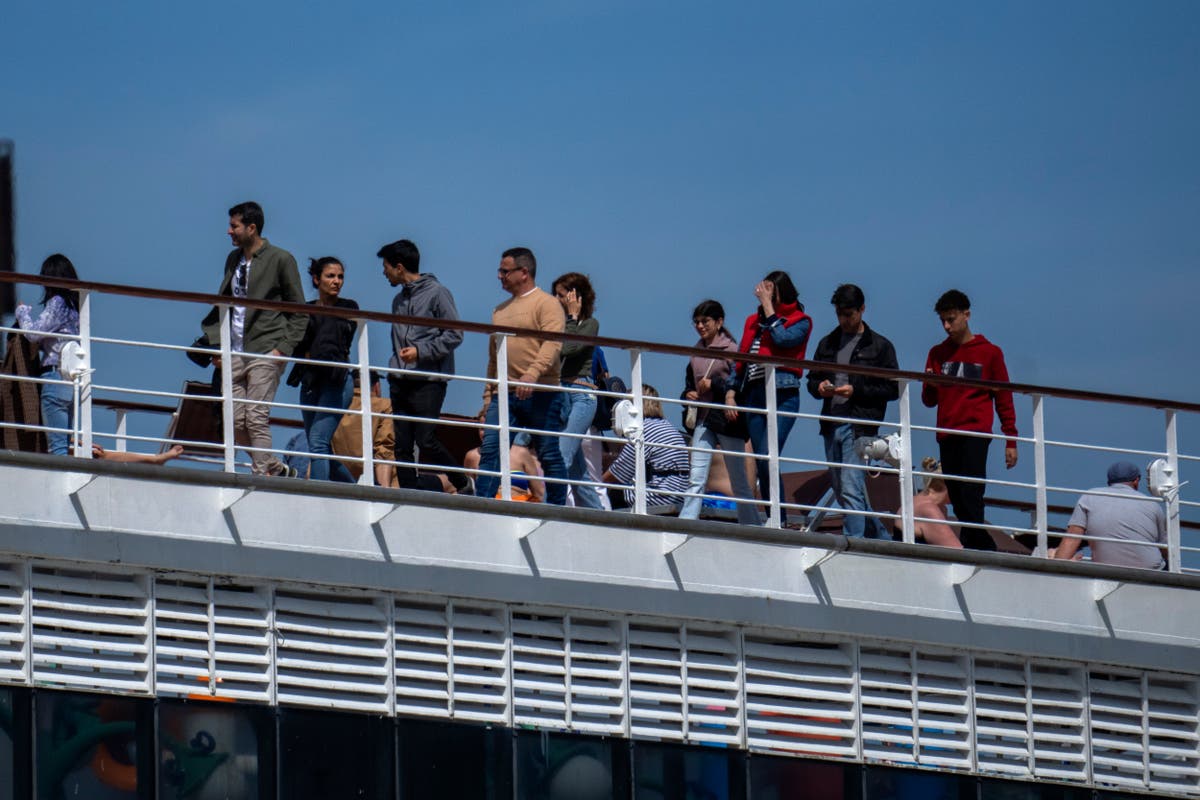Cruise ship carrying 1,500 passengers stuck in Spain port after document row
A cruise ship reportedly carrying 1,500 passengers is stuck in Barcelona


Sign up to Simon Calder’s free travel email for expert advice and money-saving discounts
Get Simon Calder’s Travel email
A cruise ship reportedly carrying 1,500 passengers was left stuck in the Spanish northeastern port of Barcelona due to the visa problems of a group of Bolivian passengers who were due to disembark, officials said on Wednesday.
Authorities say 69 Bolivians are not being allowed to leave the ship because they lack valid documents to enter the European Union’s border-free Schengen area.
Spanish government officials in the city said they are in contact with Bolivian authorities and the MSC Cruises Company to resolve the situation. The ship had sailed from Brazil to cover a route in the Mediterranean Sea.
Spanish state news agency Efe and other media said that some 1,500 passengers were meanwhile on board the MSC Armony hoping to continue the cruise to Croatia.
A statement from the Bolivian Foreign Ministry on Tuesday said the Bolivian Embassy in Spain and the country’s Consulate General in Barcelona “are carrying out the pertinent steps to address this case,” coordinating with Spanish authorities, as well as with the MSC Cruises Company.
A view of the cruise ship MSC Armony moored in the port of Barcelona, Spain, Wednesday, April 3, 2024
(Copyright 2024 The Associated Press. All rights reserved.)
MSC Cruises said in a statement the Bolivians included families and children.
It said the “passengers appeared to have proper documentation upon boarding in Brazil. We have been informed by the authorities that the visas are not valid for entry into the Schengen area. As a result, passengers have not been able to disembark in Barcelona, which was their final destination.”
The company said the ship remained in port while it works with authorities to facilitate the process.
The Schengen area is an ID-check-free travel zone comprising some 30 European Union countries.
Earlier this week it was confirmed two countries have partially joined Europe’s ID-check-free travel zone, marking a new step in the two countries’ integration with the European Union.
After years of negotiations by Romania and Bulgaria to join the Schengen area, there is now free access for travelers arriving by air or sea. Land border checks will remain in place, however, due to opposition primarily from Austria, which has long blocked their bid over illegal migration concerns.
EU Commission President Ursula von der Leyen hailed the change as a “huge success for both countries” and a “historic moment” for what is the world’s largest free travel zone.

 JimMin
JimMin 
































